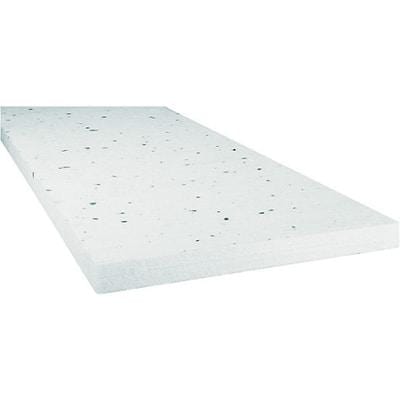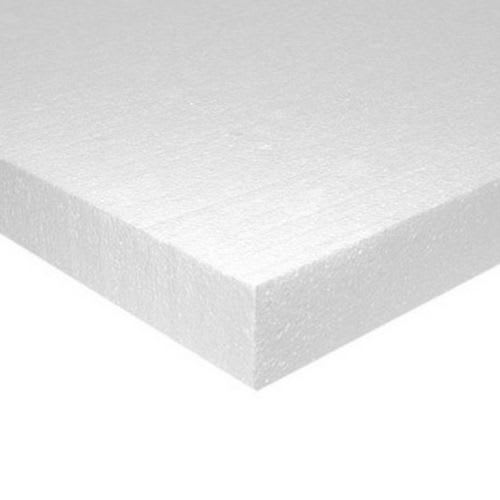EPS Insulation
(13 Products)Among rigid insulations, EPS boards are one of the most budget-friendly options. Lightweight and easy to handle due to its low density, they are available in a range of thicknesses, typically between 25mm and 100mm. While Expanded Polystyrene Insulation Boards may not boast the pinnacle of thermal conductivity and supreme thermal performance seen in some other materials, it presents an ideal solution for those seeking effective insulation without the demand for top-tier thermal attributes.
Tailored for individuals who prioritise a balance between cost-efficiency and functionality, EPS strikes a commendable middle ground in the realm of insulating materials.
What is EPS?
Expanded Polystyrene (EPS) is a lightweight, rigid, plastic foam insulation material produced from solid beads of polystyrene. The process of creating EPS involves expanding these beads with steam, causing them to fuse together into a solid material.
Although less thermally efficient than some counterparts like XPS insulation, its cost-effectiveness (due to its less dense nature) sets it apart as an economical solution.
Unlike XPS (extruded polystyrene board), it isn't a closed-cell insulation board, meaning over time, it might allow moisture to penetrate, even though it has a closed-cell structure.
All in all, those looking for a cost effective insulation board might want to consider using EPS insulation boards; if the application in which they plan to use it doesn't call for high-performing thermal insulation materials or impressively low thermal conductivity.
Whether you are looking for load bearing roof insulation or robust cavity wall insulation, find it all on our insulation homepage.
Where is Expanded Polystyrene (EPS) Used?
- Floor Insulation: EPS is a cost-effective choice for minimising heat loss through floorboards or tiles.
- Wall Insulation: Especially utilised in external wall insulation systems.
- Multi-Purpose: Can be used on timber, masonry, and system-built properties
- Cavity Wall Insulation: In cavity voids.
Expanded Polystyrene (EPS) Benefits
- Cost-Effective: When pitted against other rigid insulations, EPS emerges as the most economical option. It allows users to cut down on cost without sacrificing quality or thermal performance.
- Consistent Thermal Performance: Rigid, closed cell, thermoplastic foam material offers satisfactory thermal insulation performance for a range of building insulation needs.
- Compliance with Regulations: Meets modern building codes and U-value prerequisites.
- Versatility: Can be applied using adhesive and mechanical fixings.
Frequently Asked EPS Insulation Questions
How Does EPS Compare to XPS Thermally?
While EPS is cost-effective, it is less thermally efficient compared to XPS.
Generally, EPS has a slightly higher thermal conductivity compared to XPS, meaning it is not as efficient at insulating per unit of thickness. This is due to its structure formed by expanding polystyrene beads, which results in a material with more air space.
Is EPS Moisture-Resistant?
EPS has a closed-cell structure, but it's not a closed-cell insulation board, meaning it might absorb moisture over time.
The voids between the polystyrene beads of EPS make it more permeable and susceptible to water absorption.
What Are The Primary Applications of EPS Insulation?
EPS is predominantly used for floor insulation and external wall insulation systems.
Is EPS Insulation a Fire Hazard?
EPS (Expanded Polystyrene) insulation, like many other synthetic materials, is combustible. This means that if exposed to an open flame or very high temperatures, it can catch fire. However, some manufacturers treat EPS insulation with fire retardants to reduce its flammability.
Nonetheless, it's essential to follow all safety guidelines and local building codes when installing and using EPS insulation to minimise any fire risks.
What Thicknesses is EPS Insulation Available In?
EPS insulation can be found in thicknesses ranging from 25mm to 100mm.







